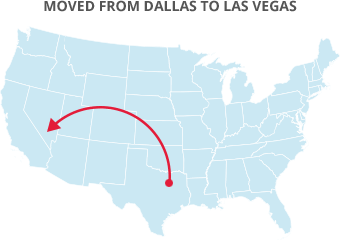

 By Julie DeLong, A-1 Freeman Moving Group
By Julie DeLong, A-1 Freeman Moving Group
Get your pet used to packing supplies
One way to prepare your furry friends for moving is to incorporate them in the packing process. Rather than locking them in a area as you arrange items in the home, allow them to play with the cartons and satisfy their curiosity. Keep in mind that if they do not do this, they may be sure to feel nervous, that could result in stress-related behavior such as barking, hyperactivity, and jumping.
Familiarizing your pets with the moving materials (including the ones your moving company in Denver utilizes) likewise helps to lessen interferences and opposition, making the transition easy and stress-free.
Steer clear of modifying your routine
Modifying your normal routine because you are preoccupied with packing and organizing could result in anxiety for your household pets, as a result making the moving process much more stressful. It's always best to maintain their routine (as well as yours) the same, which includes feeding time, walking and playtime, and even baths.
Remember that moving will be upsetting for your furry friends too. It is subsequently necessary that you exhibit some extra love and patience throughout the period.
Contact your vet
If moving out of your current area, you will need to see your veterinarian, and there are a few reasons why this will be significant:
· In order to be sure vaccines are up to date
· Obtain necessary medications to avoid having to make emergency visits to the vet
· Receive expert suggestions about the best way to lessen stress and relieve nervousness
· Ask for a recommendation for a new vet in your new town
· Get a copy of your pet’s vet reports to take with you
Take the furry friend in your vehicle
There are certainly safe ways to have your furry friends in the vehicle while your other things get moved in professional movers' vehicles. For small pets, place them in a carrier and secure it with a safety belt. For big domestic pets, such as a large dog, put them in a kennel in the back of the car.
Do not let your pet out
Avoid opening the crate before you are inside your home. Allow them to explore their new home and monitor them mindfully when initially letting them out into your securely fenced yard. Or take them out using a lead in case you don’t have a secure fence or aren’t certain if there may be places where your pet might escape your yard.
Keep them secluded
Keep your household pets secluded if you can until the house is all set up, and all is where it is supposed to be. When they see familiar things like household furniture, they are less likely to panic. In the meantime, allow them investigate the setting at their own pace. Also, give them toys and blankets they are used to to ensure they feel at home. It's not going to require much time until they're completely adjusted to their new place.
Summary
Just like human beings, family pets possess a distinct personality and thus react differently to moving. And since you know your pet best, you probably know how to make their transition to Denver as easy as possible.
Request a free quote

